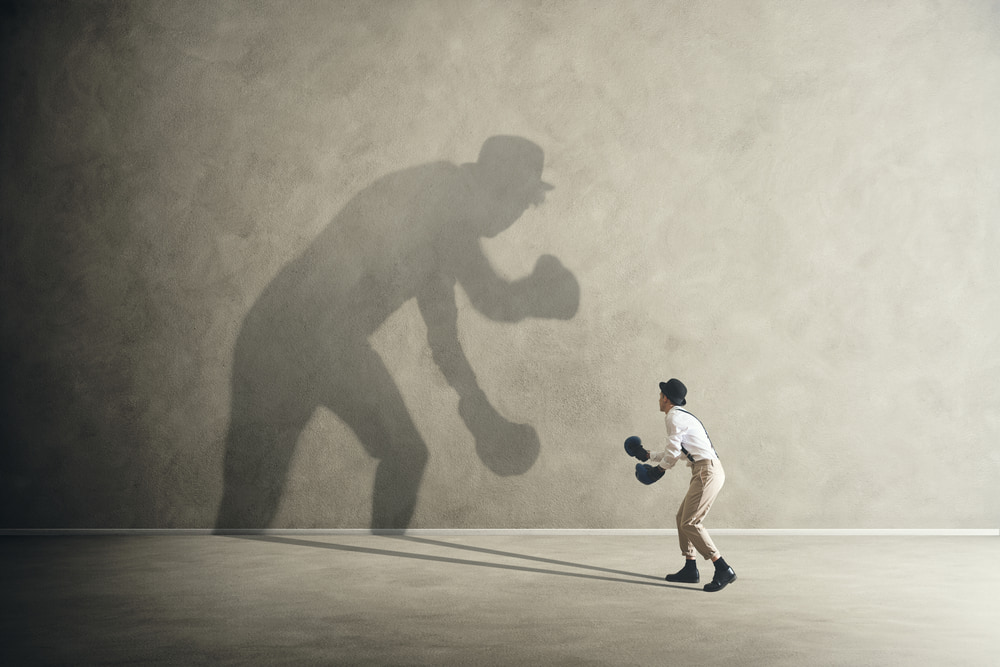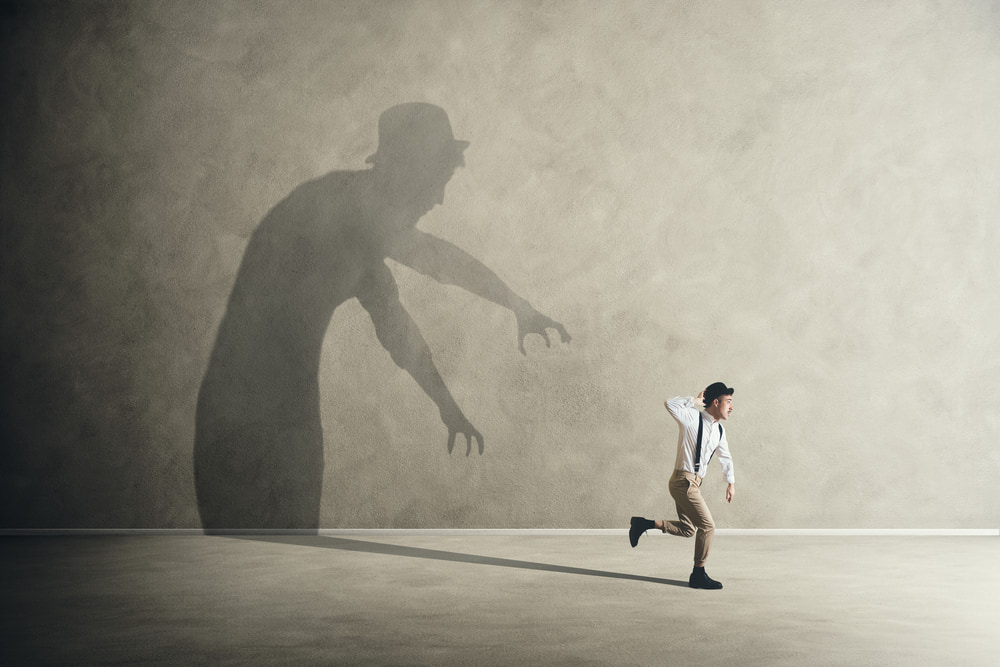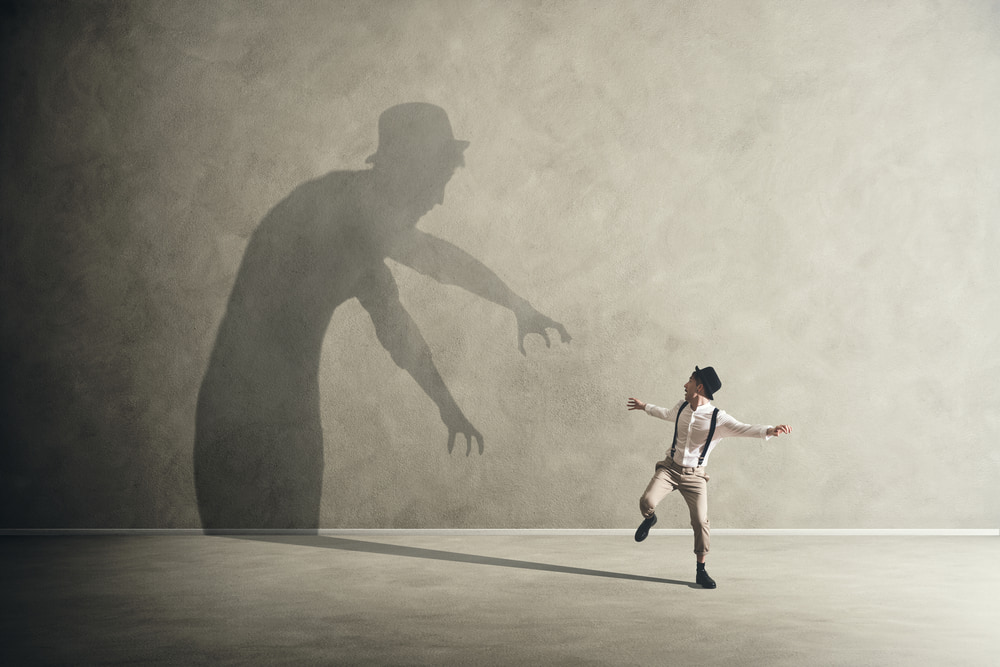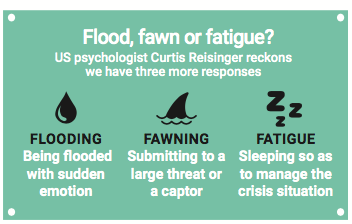
When facing imminent danger, our instincts take over. We can’t control these feelings, but we can learn from them
As humans, we have evolved a “fight or flight” response to potential dangers. It’s what helped our hominid ancestors decide whether to do battle with predators, or flee quick-sharp up a tree.
However, when under stress, or when our safety is compromised, we’ll typically experience one of three physical reactions: act impulsively, escape the situation, or freeze up. Is one of these responses more effective than the others? And why are they triggered when we feel under threat? Let’s find out.
Fight
When facing danger, you’ll know whether you can defeat it or not. A wasp on a computer screen? No problem. A Doberman in an alley? Maybe not. Similarly, if you’re faced with considerable amounts of stress in your daily life, you’ll feel a rush of adrenaline. If you believe you have the power to fight it, your body will release hormones preparing you for battle. This is the fight response.
While it’s unlikely we’ll come face-to-face with a deadly predator in our daily lives, the fight response can still be triggered by other factors.
So, whether you’re involved in an attack, an accident, or a disaster, or if you’re feeling anxious about a presentation, interview or social occasion, evolution and instinct will still kick in at the precise moment. Your muscles tense, you start to sweat, your heart beats faster – you act on impulse to save and preserve yourself. You fight.

Flight
We developed the flight response as a way of escaping an overwhelming threat. If you’re unable to fight, you need to get to safety, and fast. Your blood pressure rises and your blood sugar increases. The adrenaline you feel pushes you to flee the situation. In the event of a disaster, this means running from danger, or hiding, seeking cover, or finding higher ground.
The flight response can also be triggered in daily life. If you’re confronted by a colleague or in the middle of an argument that you find yourself losing, you may want to walk away, without saying a word. This happens more often than we think. Who hasn’t felt the fear while walking down a street and seeing a large and rowdy group of people coming the other way?
Usually we reach for our phone and pretend to take a call – surely no harm will come to us if someone is on the other end of the line? Even body language can indicate the flight response – like folding your arms to cover your body – to hide your vulnerabilities.

Freeze
Often forgotten, but possibly the most common when facing trauma, is the freeze response. Chances are, you’re picturing yourself dealing with a situation in the best way by either running for safety or readying to face (fight) the problem. In reality, a very common natural human reaction is neither of these. It’s to do nothing. You freeze.
This is your brain reacting to fear in the most primitive way, like being taken by surprise by something you see in the corner of your eye. Freezing is your primal, desperate attempt to stop the predator from spotting you. When facing danger, it’s common for our minds to slow down and assess the situation. Blood is diverted from the brain and thinking becomes incredibly difficult.

Do we have a choice?
People who freeze in trauma do not choose to, and often beat themselves up afterwards for being “passive” when in reality they have no more control than a rabbit caught in the headlights. It’s the same with our fight-or-flight reactions. People very rarely have control and are therefore not to “blame” for their instinctive responses.
The most simple advice is to breath deeply (to trigger your parasympathetic nervous system), to ground yourself in the moment by deliberately noticing things you can see, hear and physically (not emotionally) feel, and to reassure yourself that this will pass and you will shortly be back in control.

No one is immune to the physical reactions we feel when facing danger. Research shows that people don’t know how to react to a crisis until it happens. As for the miraculous survival stories we read about in the media, it’s often despite their actions. It’s mostly down to luck.
If you are struggling with your mental health and need to talk, professional support may help. Visit Counselling Directory for more information.

